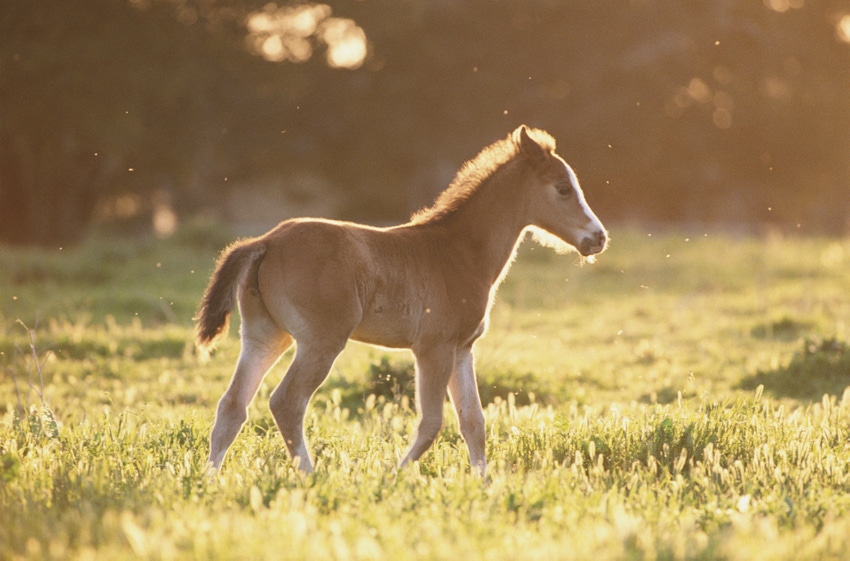
Texas Animal Health Commission (TAHC) officials are saying in spite of more cases this week, there is no known connection between the recent rash of Vesicular Stomatitus (VS) cases confirmed in eleven horses located at five different premises in three Texas counties since late May.
But the sudden appearance of the disease has prompted intrastate restrictions on the movement of animals across state lines and limits international movement of animals from Texas into several foreign destinations.
The Texas Animal Health Commission announced May 28 that the nation's first case of Vesicular Stomatitis this year involving five horses had been confirmed in Kinney County southeast of Del Rio. Those animals were immediately placed in quarantine by state officials.
Less than two weeks later three additional VS cases at two different and unrelated premises in Hidalgo County northwest of Edinburg were confirmed and those animals were also quarantined to prevent the spread of the disease.
This week TAHC confirmed three more horses have tested positive for VS, this time in San Patricio County near Mathis, Texas, in the Coastal Bend. Two of the horses were found on a premise northeast of Mathis and a third horse at a different premise about a half mile away. In spite of the close proximity of the premises, state veterinarians remain firm on an earlier statement that no connection appears to exist between the animals located at the five premises across the southern region of the state.
For the latest on southwest agriculture, please check out Southwest Farm Press Daily and receive the latest news right to your inbox.
VS is a viral infection that can cause blisters and sores in the mouth and on the tongue, muzzle, teats or hooves of horses, cattle, swine, sheep, goats, llamas and a number of other animals. Lesions usually heal in two or three weeks.
Because of the contagious nature of VS and its resemblance to other diseases such as foot and mouth disease (FMD), however, animal health officials urge livestock owners and caretakers to report symptoms to their veterinarian immediately. Most animals recover well with supportive care by a veterinarian, but some lesions can be painful.
Transportation issue
One of the greatest concerns over the contagious disease is the limitation on transportation of animals across state lines. In response to these new cases of VS in Texas, fourteen states have already placed restrictions on the movement of Texas livestock.
Restrictions can vary from state to state. In California, for example, aall horses, cattle, and swine originating from any state where VS has been diagnosed since May 27, 2014, must be accompanied by a certificate of veterinary inspection and signed by an accredited veterinarian. Exceptions to the rule include cattle and swine transported directly to slaughter.
The California restriction defines "originating" as meaning all horses, cattle, and swine that initially leave the VS infected state and come to California, or those that leave any state, visit an infected state, and then return to California. Slaughter animals are exempt from this requirement.
Similar limitations have been imposed by Florida, Idaho, Illinois, Kentucky, Michigan, Montana, Nebraska, New York, North Carolina, North Dakota, Oklahoma, South Carolina, and Vermont.
In addition, some international limitations on the movement of Texas livestock are in place. Limited movement restrictions have been enacted by Canada, the European Union, Russia, and South Korea. A complete list of state and international restrictions is available from the USDA Veterinary Services' (VS) Austin office at 512-383-2411.
Humans may become infected with the disease when handling affected animals, but this is a rare event. VS in humans is generally limited to flu-like symptoms that last for about a week.
Quarantines in place
In the past decade the Southwestern and Western United States have several VS outbreaks, which usually occur during the warmer months, often along waterways. As a result, certain species of wildlife such a cervids, including whitetail deer and mule deer, can contract and spread the disease. VS had not been detected in Texas since 2009.
TAHC reports all premises where infected horses were discovered are quarantined to limit the spread of the disease. Animals confirmed with the disease have been placed under observation by licensed veterinarians for a minimum 21 days before the quarantine can be lifted.
Animal health officials say VS outbreaks are not unusual and not considered to be a life-threatening condition, but warn the disease can spread quickly between infected animals. Officials urge horse and livestock owners to carefully monitor their stock and watch for early signs or symptoms of the disease and to report those symptoms immediately.
More information about VS is available here.
About the Author(s)
You May Also Like




